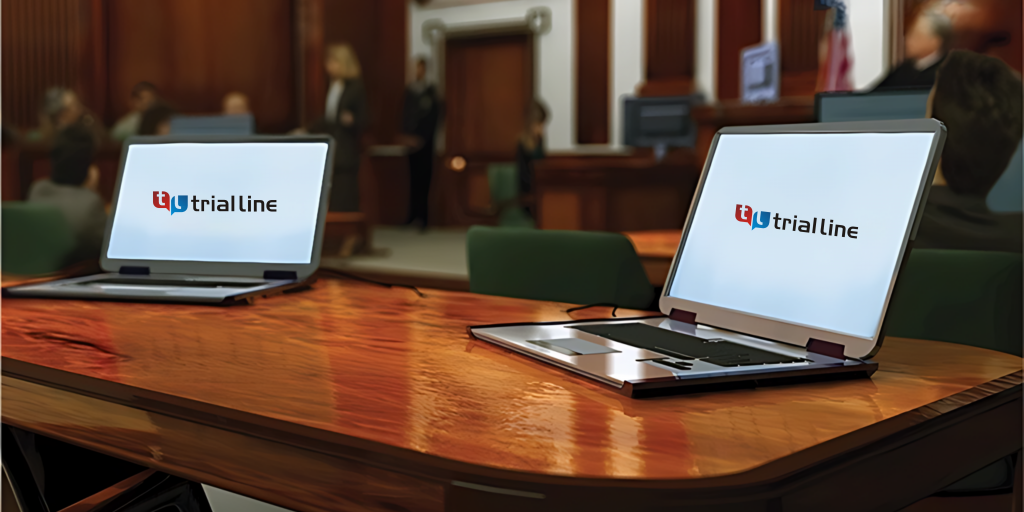Modern trial presentations bring cases to life.
Modern trial presentations bring cases to life.
Blog Article
Exactly How Trial Presentations Enhance Your Debate and Convince Jurors
Test presentations serve as an essential system for boosting lawful disagreements and convincing jurors. The critical usage of visuals not only clears up complicated info yet likewise records jurors' attention much more properly than words alone.

Value of Aesthetic Aids
Visual help play an important function in improving the performance of trial presentations, as they can considerably increase target market interaction and retention of details. In the context of a test, where jurors are tasked with processing facility info, aesthetic help offer to simplify and clarify vital points. Charts, charts, and pictures can share data and ideas that might otherwise bewilder or confuse jurors, enabling a much more simple understanding of the evidence offered.
In addition, aesthetic aids help in keeping juror focus throughout the procedures. By damaging the monotony of spoken testament, these tools can stress essential arguments, making them a lot more unforgettable. Efficient visual help can likewise evoke psychological feedbacks, which can be pivotal in encouraging jurors to line up with the speaker's narrative.

Crafting Compelling Stories
A compelling narrative is crucial in trial discussions, as it serves as the foundation of effective persuasion. It enables lawyers to weave together realities, evidence, and psychological aspects into a systematic tale that reverberates with jurors. This narrative framework makes it possible for jurors to recognize the intricacies of the instance while leading them via the lawyer's debate.
To craft an engaging story, lawyers need to concentrate on clearness and comprehensibility. This entails developing a clear protagonist-- commonly the client-- and detailing their journey with the occasions in concern. Providing the realities in a logical series boosts comprehension and keeps interaction. Additionally, using dazzling descriptions can create mental images that assist jurors envision the occasions, making the narrative a lot more remarkable.
Moreover, integrating crucial motifs throughout the presentation enhances the core message and help in retention - trial presentations. The story needs to not just communicate information yet likewise stimulate a sense of justice, highlighting the stakes involved. Ultimately, a well-constructed narrative promotes a link between the jurors and the instance, positioning the lawyer's debate as both legitimate and compelling, therefore enhancing the likelihood of a beneficial judgment

Involving the Court Emotionally
Effective court interaction rests on the attorney's ability to get in touch with jurors on a psychological level. This connection can substantially impact jurors' perceptions and their best decision-making. Making use of sob stories enables lawyers to humanize the situation, changing abstract legal principles right into relatable experiences. By providing real-life tales or endorsements, attorneys can stimulate empathy and concern, cultivating a much deeper understanding of the problems at stake.
Visual aids, such as photos or videos, can further improve psychological involvement, offering jurors with vibrant representations of the situation's human aspects. Crafting a story that highlights the struggles and victories of the people included makes sure that jurors see past the legal arguments and acknowledge the human repercussions of their choices.
Furthermore, tone and body language play a vital duty in conveying emotion. A lawyer's passionate distribution can reverberate with jurors, reinforcing their psychological financial investment in case. It's vital to stabilize sob stories with factual evidence, guaranteeing that jurors feel urged to act while remaining based in the reality. Inevitably, an emotionally engaged jury is most likely to be persuaded, making psychological link an essential part of reliable trial presentations.
Structuring Your Presentation

The body Look At This of the presentation should be practically fractional right into bottom lines, each sustained by compelling evidence. It is valuable to use storytelling techniques to weave truths right into a story that jurors can easily comply with. Aesthetic help, such as charts and video clips, can boost comprehension and involvement, aiding to highlight important items of evidence.
Real-World Case Research Studies
Taking a look at real-world study gives very useful look at this site understandings into the art of trial presentations and persuasion. The spots situation of "O.J. Simpson v. The People of The golden state" shows just how visual help and compelling stories can guide court understandings. The protection group properly used an approach that integrated high-profile specialist testimonies with multimedia presentations, which mesmerized jurors and eventually influenced their decision.
One more remarkable example is the "McDonald's Coffee Instance," where the complainant's lawyers used graphic images of the injuries endured by Stella Liebeck. trial presentations. This plain visual evidence played a critical role in communicating the extent of her burns, resulting in a substantial jury award. Such instances show that impactful test discussions often rest on the reliable combination of visuals and storytelling to stimulate psychological feedbacks from jurors
Additionally, the "Casey Anthony Trial" highlighted the value of narrative coherence and reliability. The prosecution's visit this site right here failing to establish an engaging timeline decreased their persuasive power, highlighting the need of a well-structured presentation. Examining these situations discloses that successful test presentations need critical preparation, psychological interaction, and the ability to resonate with jurors' worths and beliefs.
Conclusion
Trial discussions dramatically boost disagreements and convince jurors via the critical use of aesthetic aids, compelling stories, and emotional interaction. A well-structured discussion equilibriums psychological charms with accurate proof, ultimately reverberating with jurors' worths.
Report this page